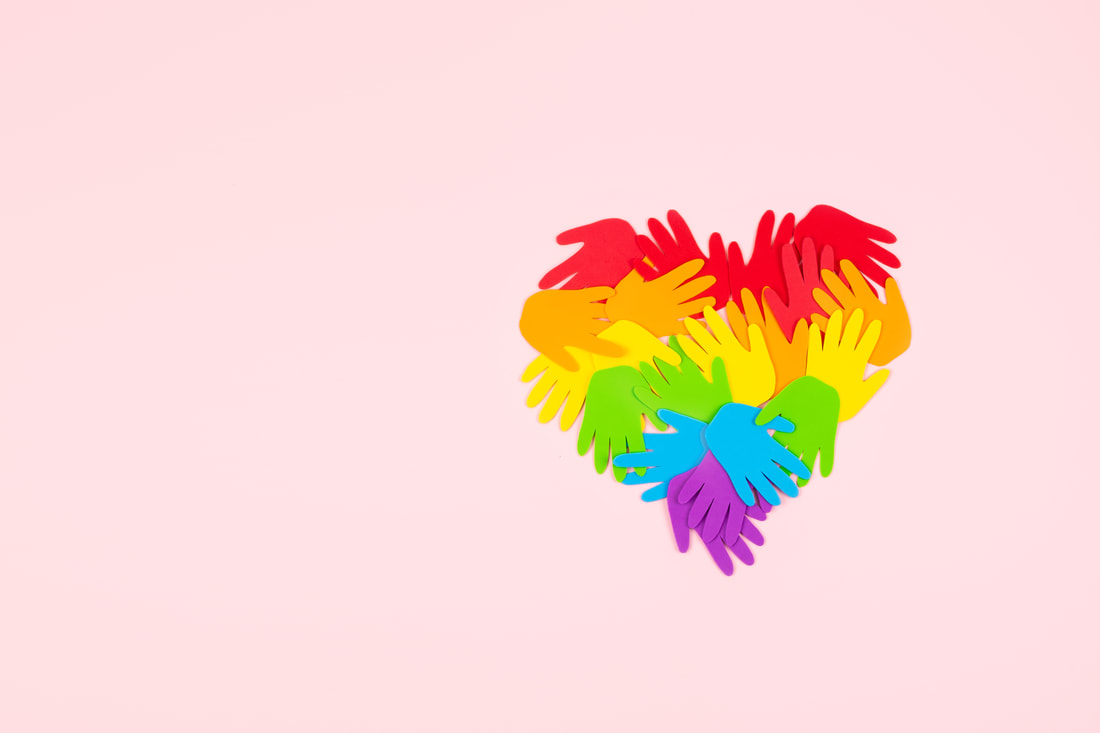It’s conventional thinking to assume you should have a lot in common with someone to enable you to become friends or develop any kind of relationship. There’s no doubt that common interests can be the foundation for conversation that flows easier. The topics are familiar to both people and there are common points of references to ponder, laugh about or even debate.
However, differences I have with some of my family and friends add texture and value to my life. Differences offer an opportunity to learn from each other and expand our horizons. They lead to experiences we may never have considered whether they are as adventurous as skydiving or as cerebral as learning to play music.
However, differences I have with some of my family and friends add texture and value to my life. Differences offer an opportunity to learn from each other and expand our horizons. They lead to experiences we may never have considered whether they are as adventurous as skydiving or as cerebral as learning to play music.
In practice, this was my immediate and extended family’s life in a nutshell early on after we came to the United States. None of us knew about baseball, apple pie or even Christmas when we came here. But we learned about all those things and so much more as we became friends with people from another culture. Sure, we acclimated to the culture here, but many in my family simultaneously revere the culture they grew up in in India. There’s incredible value and richness in embracing both.
It’s amazing how many phrases, rituals, traditions, and even colloquialisms mean the same thing and are brought to life for the exact same reasons between two different cultures literally halfway around the world. I know if we cross-reference cultures across the world, we would find much more in common – just phrased differently, practiced differently and by people who look different – than we would uncommon when we get to the foundation and roots.
The greatest differences among us should at least be respected, if not embraced. Whether they are different ideologies, religious beliefs, lifestyles, rituals, traditions, philosophies and even differences about for which team to cheer. Differences enrich our lives by adding depth and breadth to our thinking and to our experiences. They can sometimes even fill latent voids we never recognized or satisfy an underlying feeling “something was amiss.”
This is PRIDE month and it’s a time for the LGBT community to celebrate the freedom to be themselves. The fact that there has to be a month to highlight this inherently indicates that they don’t have enough freedom to live the life they want and be who they are. I have friends in the LGBT community and they have the same aspirations, challenges, doubts, beliefs and so many other feelings that I do.
The Supreme Court will decide on a case this month (Fulton v. Philadelphia) over a policy that bars discrimination based on sexual orientation. I decided to limit much discussion about “political” issues in this space because political banter is toxic these days. But like nearly every issue that profoundly impacts people’s lives every day, this isn’t a political issue. It’s a human issue.
And my belief is that every human being should have the freedom to live the life they want as long as they do no harm to another human being. I’m heartened by a Gallup Poll released this month that found that 70% of Americans support same-sex marriage. It’s yet another indication that our country is evolving to be true to itself – that “We, the people” believe all people are indeed “created equal” and should be treated that way.
I hope we continue to value our differences even more. Not only differences in perspectives. But in how people live their lives.
It’s amazing how many phrases, rituals, traditions, and even colloquialisms mean the same thing and are brought to life for the exact same reasons between two different cultures literally halfway around the world. I know if we cross-reference cultures across the world, we would find much more in common – just phrased differently, practiced differently and by people who look different – than we would uncommon when we get to the foundation and roots.
The greatest differences among us should at least be respected, if not embraced. Whether they are different ideologies, religious beliefs, lifestyles, rituals, traditions, philosophies and even differences about for which team to cheer. Differences enrich our lives by adding depth and breadth to our thinking and to our experiences. They can sometimes even fill latent voids we never recognized or satisfy an underlying feeling “something was amiss.”
This is PRIDE month and it’s a time for the LGBT community to celebrate the freedom to be themselves. The fact that there has to be a month to highlight this inherently indicates that they don’t have enough freedom to live the life they want and be who they are. I have friends in the LGBT community and they have the same aspirations, challenges, doubts, beliefs and so many other feelings that I do.
The Supreme Court will decide on a case this month (Fulton v. Philadelphia) over a policy that bars discrimination based on sexual orientation. I decided to limit much discussion about “political” issues in this space because political banter is toxic these days. But like nearly every issue that profoundly impacts people’s lives every day, this isn’t a political issue. It’s a human issue.
And my belief is that every human being should have the freedom to live the life they want as long as they do no harm to another human being. I’m heartened by a Gallup Poll released this month that found that 70% of Americans support same-sex marriage. It’s yet another indication that our country is evolving to be true to itself – that “We, the people” believe all people are indeed “created equal” and should be treated that way.
I hope we continue to value our differences even more. Not only differences in perspectives. But in how people live their lives.

